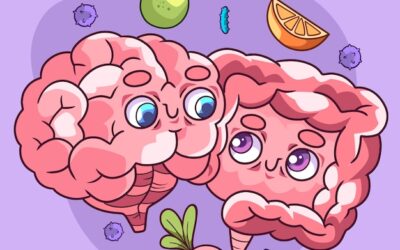Fatigue, or the feeling of extreme tiredness and lack of energy, is a common complaint that many people experience at some point in their lives. It can affect your physical, mental, and emotional well-being, and often hinders your ability to perform daily activities effectively. While there are several factors that can contribute to fatigue, one significant aspect that is often overlooked is nutrition.
In this blog, we will delve into the reasons why nutrition plays a vital role in determining our energy levels and how making healthy food choices can help combat fatigue.
- Nutrient Deficiencies: Our body requires a wide range of essential nutrients, such as vitamins, minerals, proteins, carbohydrates, and fats, to function optimally. When we do not get enough of these nutrients through our diet, it can lead to nutrient deficiencies, which can manifest as fatigue. For example, iron deficiency can cause anemia, resulting in reduced oxygen-carrying capacity of the blood and decreased energy levels. Similarly, deficiencies in vitamin B12, vitamin D, magnesium, and other vital nutrients can also contribute to fatigue.
Solution: To combat nutrient deficiencies, it is crucial to maintain a well-balanced diet that includes a variety of nutrient-rich foods, such as fruits, vegetables, whole grains, lean proteins, and healthy fats. If you suspect a nutrient deficiency, it is best to consult a healthcare professional for appropriate testing and guidance.
- Blood Sugar Imbalance: Our body relies on glucose, a type of sugar, as its primary source of energy. However, when our blood sugar levels fluctuate too much or remain consistently high or low, it can lead to fatigue. Consuming excessive amounts of sugary foods or refined carbohydrates, such as sodas, candies, white bread, and pastries, can cause a rapid rise in blood sugar levels, followed by a sudden drop, resulting in fatigue and low energy levels.
Solution: Opt for a balanced diet that includes complex carbohydrates, such as whole grains, legumes, and vegetables, which provide a steady release of glucose into the bloodstream, helping to maintain stable blood sugar levels and sustained energy throughout the day.
- Dehydration: Water is essential for numerous bodily functions, including maintaining proper energy levels. Dehydration, or not consuming enough water, can lead to fatigue, as it affects the body’s ability to transport nutrients and oxygen to cells, leading to decreased energy production.
Solution: Make sure to drink an adequate amount of water throughout the day, aiming for at least eight glasses (2 liters) of water per day. Adjust your water intake based on your activity level, weather conditions, and individual needs.
- Poor Gut Health: The health of our gut, also known as the gastrointestinal tract, plays a significant role in our overall well-being, including our energy levels. An unhealthy gut, characterized by an imbalance of gut bacteria, inflammation, and poor digestion, can lead to fatigue and low energy levels. Processed foods, excessive sugar, unhealthy fats, and alcohol can disrupt the balance of gut bacteria and compromise gut health.
Solution: Incorporate a variety of fiber-rich foods, such as fruits, vegetables, legumes, and whole grains, into your diet to support a healthy gut. Probiotic-rich foods, such as yogurt, kefir, and fermented vegetables, can also help maintain a healthy gut flora. Limit consumption of processed foods, added sugars, unhealthy fats, and alcohol to promote optimal gut health.
- Food Sensitivities: Some individuals may have sensitivities or intolerances to certain foods, such as gluten, dairy, or other specific allergens, which can lead to fatigue and low energy levels. These sensitivities trigger an immune response in the body, leading to inflammation and discomfort and hence fatigue.
Solution: Keep a food diary in order to keep a tract of foods that may trigger any symptoms. Try elimination diet and get tested for allergies. Opt for anti anti-inflammatory diet.




